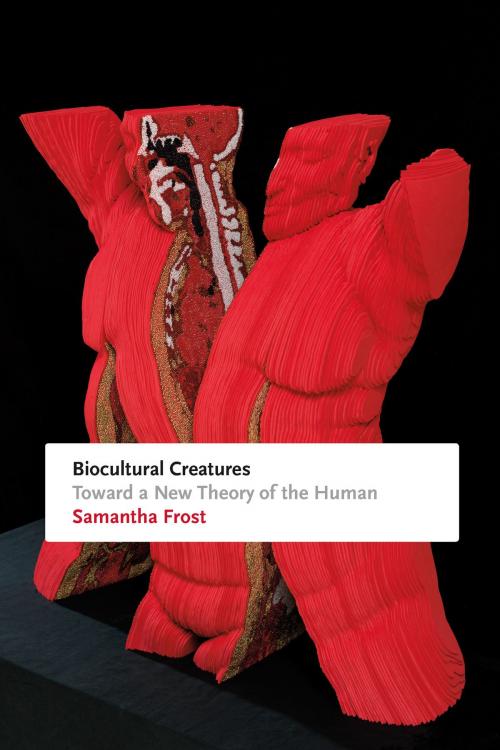Biocultural Creatures
Toward a New Theory of the Human
Nonfiction, Science & Nature, Science, Biological Sciences, Biology, Religion & Spirituality, Philosophy, Political, Social & Cultural Studies, Social Science, Gender Studies, Feminism & Feminist Theory| Author: | Samantha Frost | ISBN: | 9780822374350 |
| Publisher: | Duke University Press | Publication: | May 19, 2016 |
| Imprint: | Duke University Press Books | Language: | English |
| Author: | Samantha Frost |
| ISBN: | 9780822374350 |
| Publisher: | Duke University Press |
| Publication: | May 19, 2016 |
| Imprint: | Duke University Press Books |
| Language: | English |
In Biocultural Creatures, Samantha Frost brings feminist and political theory together with findings in the life sciences to recuperate the category of the human for politics. Challenging the idea of human exceptionalism as well as other theories of subjectivity that rest on a distinction between biology and culture, Frost proposes that humans are biocultural creatures who quite literally are cultured within the material, social, and symbolic worlds they inhabit. Through discussions about carbon, the functions of cell membranes, the activity of genes and proteins, the work of oxygen, and the passage of time, Frost recasts questions about the nature of matter, identity, and embodiment. In doing so, she elucidates the imbrication of the biological and cultural within the corporeal self. In remapping the relation of humans to their habitats and arriving at the idea that humans are biocultural creatures, Frost provides new theoretical resources for responding to political and environmental crises and for thinking about how to transform the ways we live.
In Biocultural Creatures, Samantha Frost brings feminist and political theory together with findings in the life sciences to recuperate the category of the human for politics. Challenging the idea of human exceptionalism as well as other theories of subjectivity that rest on a distinction between biology and culture, Frost proposes that humans are biocultural creatures who quite literally are cultured within the material, social, and symbolic worlds they inhabit. Through discussions about carbon, the functions of cell membranes, the activity of genes and proteins, the work of oxygen, and the passage of time, Frost recasts questions about the nature of matter, identity, and embodiment. In doing so, she elucidates the imbrication of the biological and cultural within the corporeal self. In remapping the relation of humans to their habitats and arriving at the idea that humans are biocultural creatures, Frost provides new theoretical resources for responding to political and environmental crises and for thinking about how to transform the ways we live.















